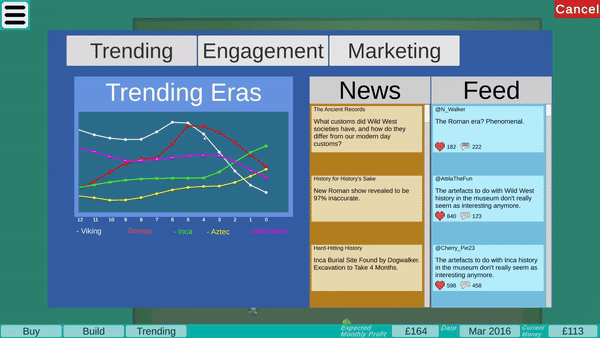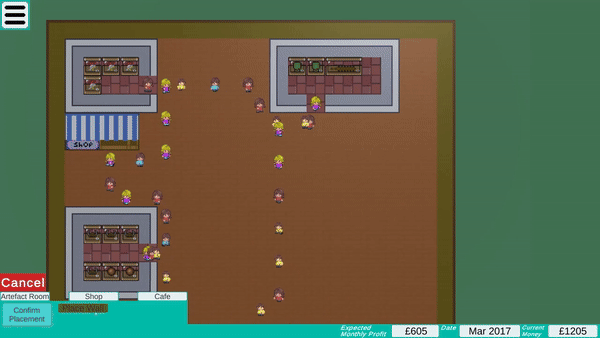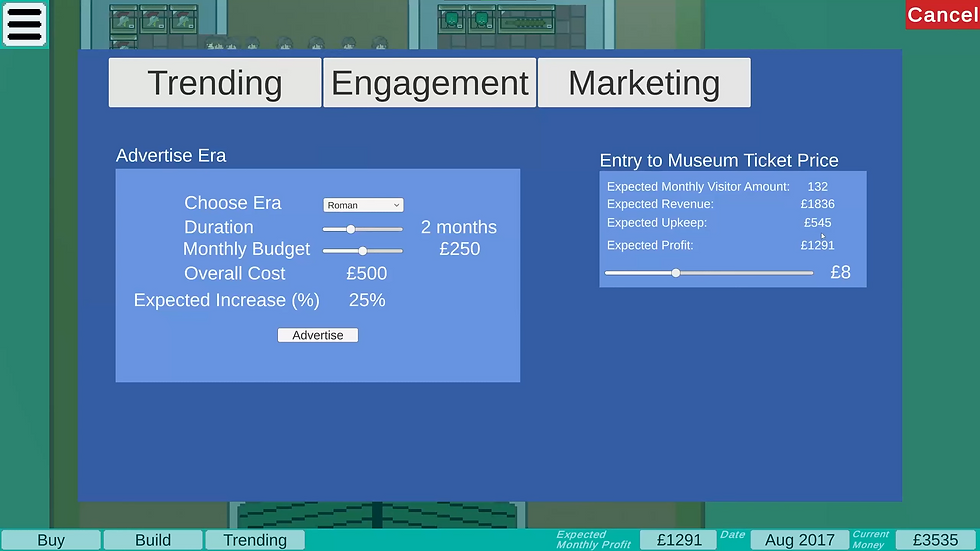Museum Manager
If you click off of the game and cannot click back on it, please refresh the page.
Throughout my third year in university, I took part in a module called "Commercial Games", centred around designing a game that would theoretically be commercially viable.
I created a game called Museum Manager where the player must run their own museum and use a fictional in-game social media to understand what historical eras visitors would most like to see. Throughout the project, I took part in the following:
Creating a paper prototype to clearly communicate my game's mechanics to others.
Numerically designing the game to help with understanding how all of the different elements relate to each other.
Making a presentation of my game idea with evidence of how successful similar games are, how much DLC they release, and how frequently. Knowing information about their DLC helped with the commercial viability of my game as I thus knew similar games' monetisation methods.

Working on a game independently for a year has helped me grow my skills in multiple ways. Some ways the project helped me were:
Understanding how to identify what is vital to the player experience and ensuring the most important aspects of the game work cohesively.
Categorising my design ideas relating to the difficulty of the task and the potential of that design element.
The challenge of creating the game in an engine I had little experience with before (Unity) proved a valuable learning opportunity, both in understanding how I can improve my programming skills and shape my designs around what is physically possible with my programming knowledge.

Designing Museum Manager
A portion of the Museum Manager design document is seen to the right, focusing on how social media works in the game. The in-game social media is a valuable tool to the player, and so it was important that I designed it in a way that was easy to understand and utilise.
Creating mockups made it easier to picture the mechanics, both for myself and others, and helped me accurately determine the scope of the project.




Commercial Placement
The commercial placement of Museum Manager can be seen to the right. It details the price of similar games, what sort of DLC similar games have, and the price and frequency of such DLC.
Such information was useful in determining the commercial viability of my game if it were completely developed and published.
A Video of Museum Manager
The below video demonstrates a playthrough of the game, utilising the several elements available. As seen in the video, for the player to be as profitable as they can, they must utilise the trending tab, where they can see what eras are popular. More popular eras bring in more visitors.
Players must also manage the ticket price and the selling price of items in shops and cafes, as these prices affect the number of visitors, shop customers and cafe customers. If players want to make their eras more popular, they can advertise them for their preferred price by setting the budget and duration of the advertisements. By making an era more popular, more people will visit the museum and buy items in the shops and cafes.